Last Chance to Catch NYC's Holiday Notalgia Train
We met the voices of the NYC subway on our nostalgia ride this weekend!


Architect Emery Roth’s illustrious career was kickstarted by major commissions for apartment hotels on Manhattan’s Upper West Side, especially the Hotel Belleclaire, which opened in 1903. Breaking from the mold of Beaux-Arts structures that were popular at the time, Roth gave Hotel Belleclaire a more fanciful, Art Noveau, and Secessionist-inspired decorative design. This whimsical aesthetic was enhanced by the massive domed cupola that once topped the building. Somewhere along the way, the dome disappeared.
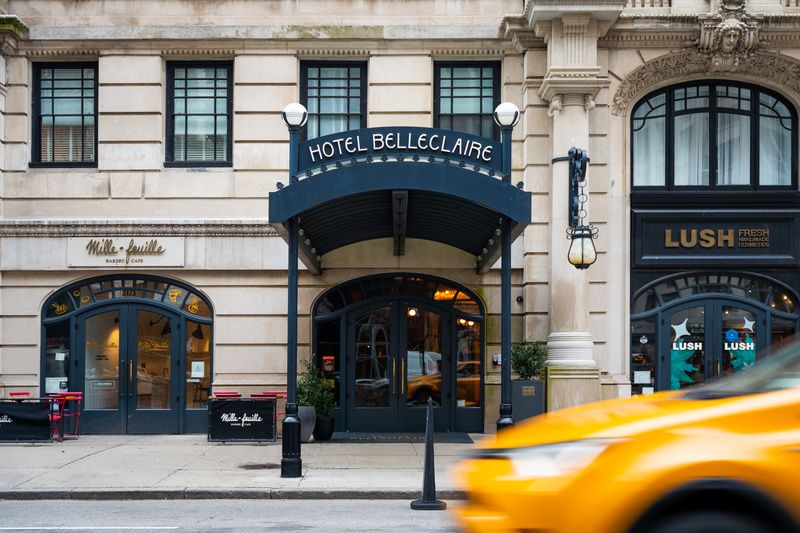
Popular in the late 1800s and early 1900s, apartment hotels offered upper-middle-class families a respectable middle ground between apartment living and owning a home. Hotel Belleclaire opened in 1903 amidst a boom in apartment hotel construction on the Upper West Side, which saw the rise of The Dakota, The Ansonia, The Dorilton, and more. In a letter from Richard Roth, Jr. to the architect who started renovations at Hotel Belleclaire in 2014, he emphasized the importance of the Belleclaire to his grandfather’s legacy:
The Belleclaire’s original Broadway storefront was an exuberant composition in stone, one of the first and only New York examples of Art Noveau and Viennese Seccessionist ornamentation on a skyscraper. Its aesthetic uniqueness alone should merit its restoration, but more than that, it was the commission that put Emery Roth and Sons on the map, and I and my father and uncle owe our careers in large part to this one building. It still amazes me that my grandfather would take such a stylistic risk on the biggest project of his young career…The Hotel Bellecliare was my grandfather’s chance to bridge the artistic currents of his Europen roots with the high-rise dynamism of his adopted city, and as such stands as a canonical building on par with the Ansonia and the Apthorp.”
Richard Roth, Jr.
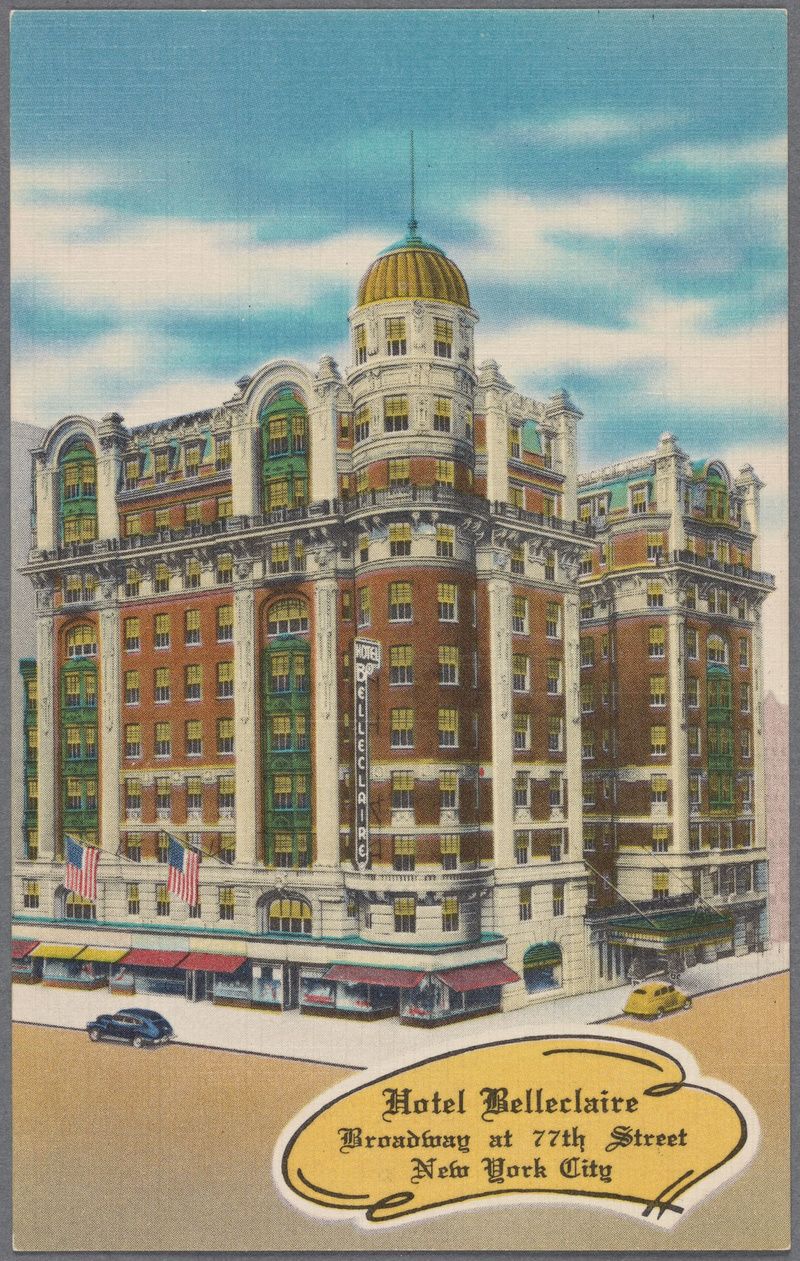
The domed cupola was always a unique feature of the building. It was likely empty inside, save for a light that shone out through the windows. There was also once a roof garden restaurant atop Hotel Belleclaire. A 20th-century edition of The Hotel Belleclaire Magazine boasted that the restaurant offered performances by the Royal Hungarian orchestra, “magnificent views,” “superb service,” and was a place to “get away from the heat, noise, and dust and enjoy a cold salad or a good cold cut.”
Major changes came to the hotel in the 1920s with a new manager, Walter Guzzardi. Ground floor spaces, including the main dining room, were converted into stores, and the original ornate sidewalk railing was removed. Emery’s grandson would write of this “renovation” as “the beginning of the decline” for the hotel.
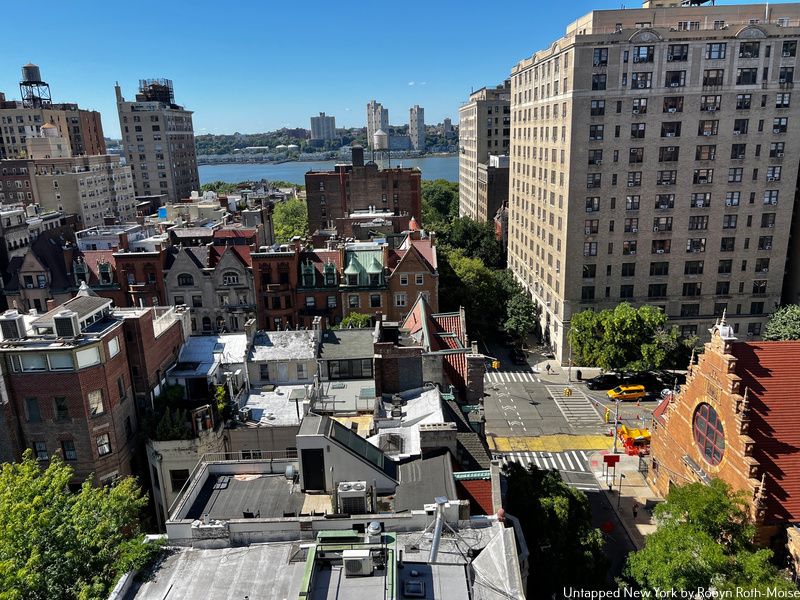
Many long-term residents left the hotel during the Great Depression of the 1930s. By the end of the decade, the Belleclaire was being advertised as a transient hotel with cheap rooms for rent nightly. Larger former residences were divided into smaller spaces and a very different type of clientele occupied the rooms.
The dome that once topped the building’s tower at the corner of 77th Street and Broadway was removed at some point in the 1950s or 1960s. It is unclear exactly when or why. It’s possible that the dome needed repairs and, with a decline in business, it was cheaper for the hotel to simply remove it rather than fix it. In his 2014 letter, Richard Roth, Jr. called the loss of the cupola “a dramatic devastation.” On a recent trip to the hotel, we ventured up to the roof with the hotel’s general manager and got to see where the dome once stood.
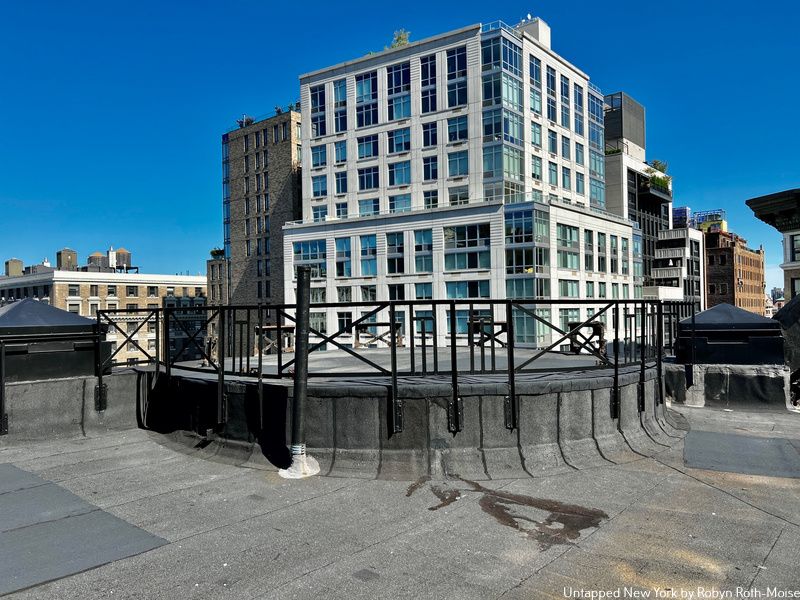
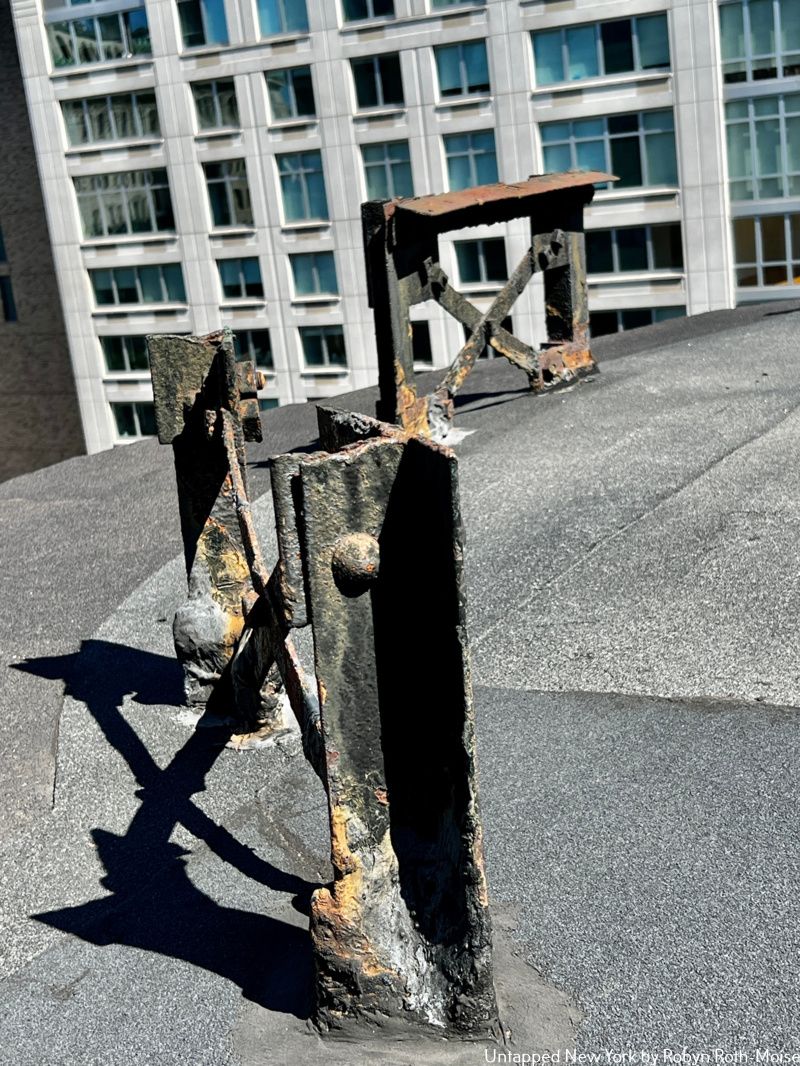
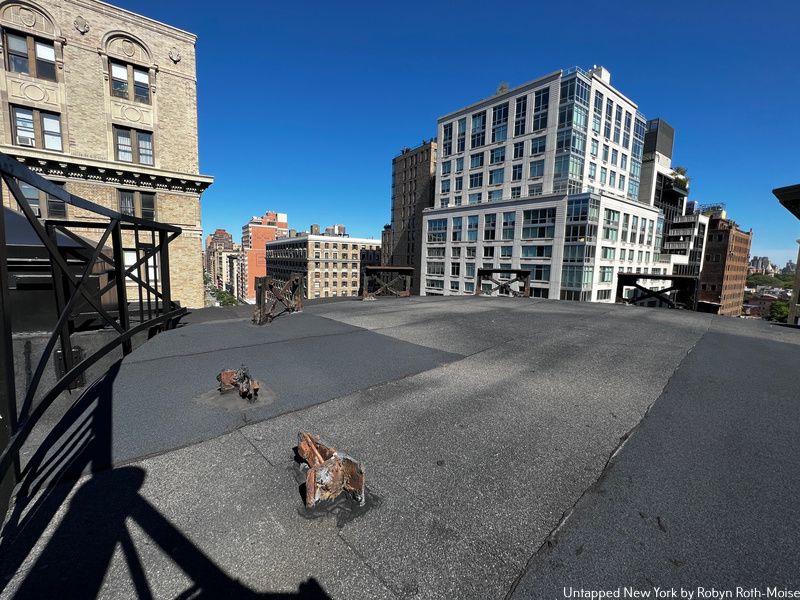
The building was designated as a New York City landmark in 1987, decades after the dome had already been removed, otherwise, the owners would have needed to seek permission from the Landmarks Preservation Commission. As you can see in the gallery above, the dome once occupied a space on the roof where a raised circular platform remains, now guarded by a fence for safety. Upon closer inspection, we saw rusty metal remnants of the dome’s support structure. Since its removal, the cost of reconstructing the dome has always been prohibitive, but there are exciting plans in the works for the Belleclaire’s rooftop.
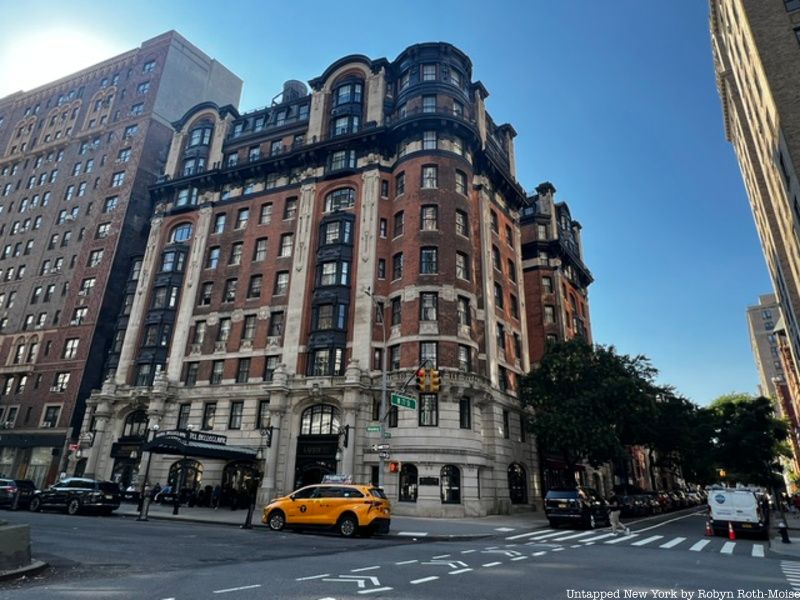
The Hotel Belleclaire has been completely transformed into a boutique hotel over the past decade. Much work has been done to reverse some of the changes made throughout its history and to bring the building back to its former glory. On the ground floor, the limestone facade was restored to its pre-storefront look introduced in the 1920s. The main entrance was moved back to the Broadway side with signage that matches signage on the building from the early 1900s. Inside, original features such as the lobby’s hand-laid mosaic floor, grand skylight, and original wood doors were uncovered and incorporated into the modern design.
Next, check out 10 Lost Grand Hotels of NYC
Subscribe to our newsletter